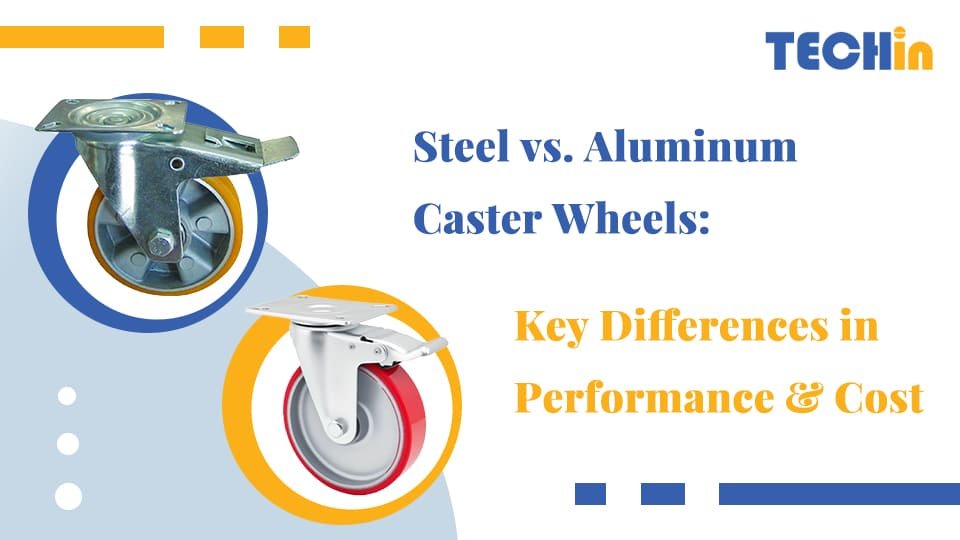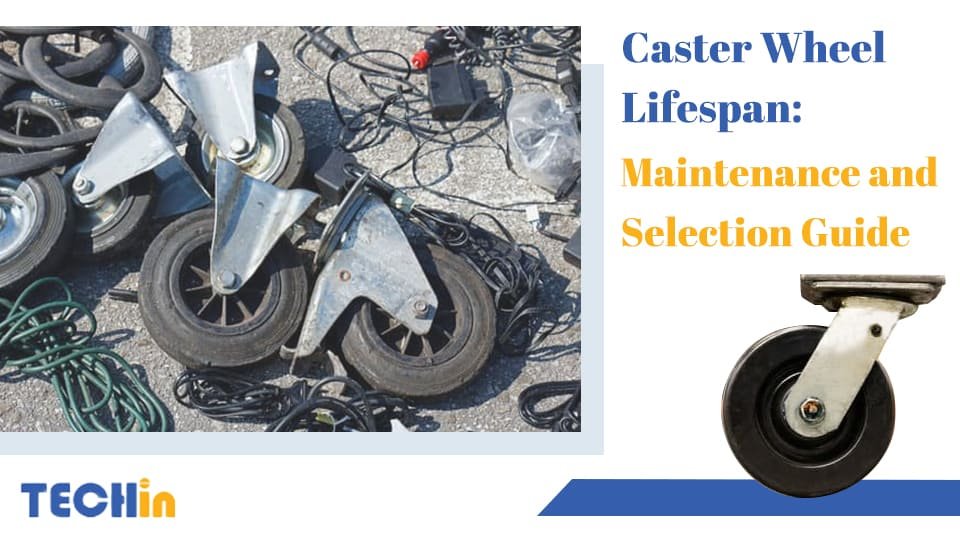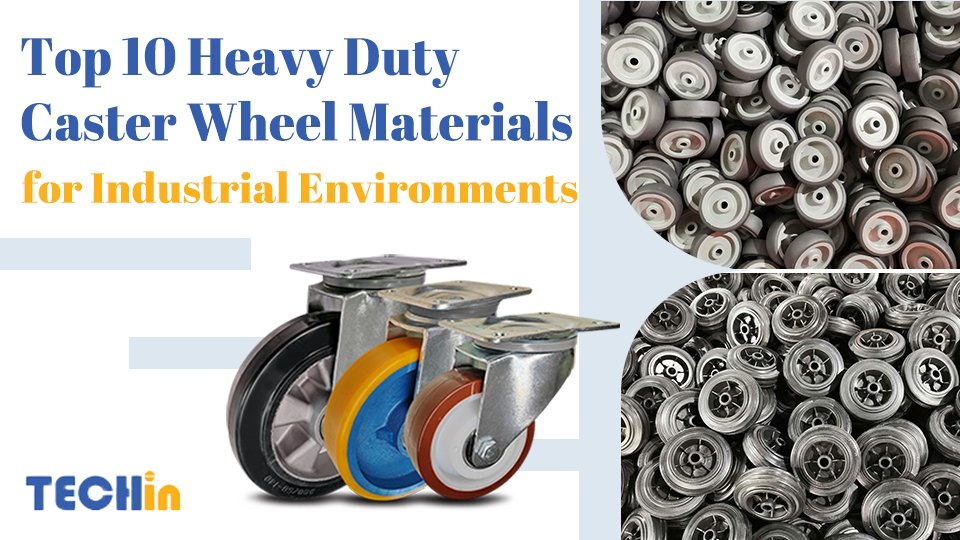Introduction
Nylon caster wheels are used in many industries because they’re durable, lightweight, and easy to move. Whether you need them for industrial use, commercial use, or just around the house, nylon casters are a great solution. In this guide, we’ll cover everything you need to know about nylon casters, including their benefits, uses, how to choose the right ones, and how to take care of them.
What Are Nylon Casters?
Nylon casters are wheels made from high-strength nylon material, designed to support and transport heavy loads with minimal resistance. These wheels are often used in furniture, carts, industrial equipment, and medical devices due to their smooth movement and durability.
Nylon casters are known for their high load capacity, resistance to chemicals and moisture, and low rolling resistance. They are commonly found in both swivel and fixed configurations, offering flexibility based on usage requirements.
What Are the Advantages of Nylon Casters
Nylon caster wheels offer multiple benefits, making them a preferred choice for many industries.
✅ Durability – Nylon casters resist wear and tear, even under heavy loads.
✅ Lightweight – Despite their strength, nylon wheels are lighter than metal or rubber alternatives.
✅ High Load Capacity – Nylon casters can support significant weights without deformation.
✅ Chemical & Water Resistance – Ideal for environments exposed to moisture, oils, or chemicals.
✅ Smooth & Quiet Operation – Reduced friction ensures smooth rolling with minimal noise.
✅ Temperature Resistance – Nylon can withstand extreme temperatures, making it ideal for cold storage or high-heat environments.
These advantages make nylon casters perfect for industrial, commercial, and household use.
What Are the Uses of Nylon Casters?
Nylon casters are used in various applications, including:
🔹 Industrial Equipment – Heavy machinery, factory carts, and warehouse trolleys.
🔹 Medical Devices – Hospital beds, carts, and mobile medical equipment.
🔹 Office & Home Furniture – Chairs, desks, cabinets, and storage units.
🔹 Retail & Supermarkets – Shopping carts and display racks.
🔹 Food Processing & Cold Storage – Resistant to moisture and temperature changes.
Nylon wheels are ideal for smooth surfaces like tile, concrete, and metal flooring, where they provide excellent maneuverability with minimal effort.
How to Choose Nylon Casters?
When selecting nylon casters, consider the following factors:
🔹 Load Capacity – Choose a caster that can handle your required weight without strain.
🔹 Wheel Diameter – Larger wheels roll more easily and handle rough surfaces better.
🔹 Bearing Type – Ball bearings offer smoother movement, while plain bearings require less maintenance.
🔹 Floor Compatibility – Nylon wheels work best on hard, smooth surfaces.
🔹 Swivel vs. Fixed – Swivel casters provide better maneuverability, while fixed casters ensure straight-line movement.
🔹 Braking Mechanism – Some casters include locking brakes for stability.
By assessing these factors, you can find the right nylon caster for your specific needs.
Maintenance Tips for Nylon Casters
Proper maintenance extends the lifespan of nylon caster wheels and ensures optimal performance.
🔹 Regular Cleaning – Remove dirt, dust, and debris to prevent buildup.
🔹 Lubricate Bearings – Apply grease or lubricant periodically to ensure smooth movement.
🔹 Inspect for Damage – Check for cracks, flat spots, or wear and replace damaged casters.
🔹 Tighten Mounting Bolts – Ensure the caster is securely attached to avoid instability.
🔹 Avoid Overloading – Exceeding the weight limit can lead to premature wear.
Following these maintenance tips will keep your nylon casters in top condition for years.
Conclusion
Nylon caster wheels are a great option for many applications because they’re durable, lightweight, and affordable. They can handle heavy loads, resist chemicals, and roll smoothly, making them a reliable choice for industrial, commercial, and residential use. By choosing the right type and taking care of them, you can make sure they last a long time and work well for you.
Frequently Asked Questions (FAQs)
1. What is the difference between PU and nylon casters?
Polyurethane (PU) casters offer better floor protection and a softer ride, making them ideal for sensitive surfaces. Nylon casters, on the other hand, are more durable, resistant to chemicals, and suitable for heavier loads on hard floors.
2. How are nylon wheels manufactured?
Nylon wheels are typically injection-molded, where molten nylon is poured into a mold and cooled into shape. Some wheels undergo reinforcement with glass fibers for added strength.
3. How strong are nylon casters?
Nylon casters are incredibly strong and can support heavy loads ranging from 500 kg to over 2000 kg per wheel, depending on their size, design, and reinforcement. Heavy-duty nylon casters are commonly used in industrial applications such as manufacturing, warehouse logistics, and heavy machinery transport, where high load capacity is essential.
4. Are nylon casters suitable for outdoor use?
Yes, nylon casters are water-resistant and weatherproof, making them suitable for outdoor environments. However, they may become brittle if exposed to prolonged UV radiation.
5. Do nylon casters damage floors?
Nylon casters can leave marks or scratches on delicate floors like hardwood. For floor protection, consider PU or TPR wheels.










